#the moral of the story is that welsh people are evil and you should never go to wales
Text
The Doctor: We are in Wales, spectacular!
Ruby's plot, literally two minutes later:

#the moral of the story is that welsh people are evil and you should never go to wales#doctor who#73 yards#doctor who spoilers#my lil' (original) posts tag
3K notes
·
View notes
Text
Monsters & Critics: Game of Thrones or Les Misérables – Which one should you watch?
Tonight, one great television series ends and one begins, but which one should you watch? The answer is both!
If you are vested in HBO’s sumptuous Game of Thrones, by all means, watch in real time tonight as the resolution of the great good versus evil culminates in a deadly all-or-nothing face-off between the armies of the dead (Wights, the reanimated corpses lead by White Walkers) and the armies of humankind.
It will also prove that the human forces for good will triumph over the corrupt, morally bankrupt and craven players of the series that made the show such a delight to watch.
However, you must also record Les Misérables on PBS Masterpiece, also airing tonight.
This is classic literature that plays on similar big picture good versus evil themes and much more.
Like Game of Thrones, Les Misérables is a tale of redemption, inequities of wealth and the excessive overreach of authoritarian power determined mostly by one’s stature and ability to use money to skate through difficult situations.
Both shows overlap and parallel modern themes that we see playing out in the news today including police brutality, needed prison and sentencing reform, corrupt governments and politicians and wealthy people afforded a different set of rules than average people to skew life favorably for their progeny.
These are both stories for the times eternal, not just the settings they happen to be told from in time. Though wildly different in cast, characters and locales, they resonate with so many people.
Though fictional drama, the premises for both ring true to the viewer in an authentic and profound way. This is when television is at its best in content and programming.
If you are the vested Game of Thrones viewer, you will relish PBS’ Les Misérables for the run, and if you know or care little about Game of Thrones, then by all means watch Les Misérables in real time and make it a goal to dive in and catch up on HBO’s crown jewel of programming not seen since The Sopranos aired on the network.
They are both excellent and worthy of your precious time.
What is Les Misérables?
This is a loosely historically based novel by French author Victor Hugo, set in the 19th-century Paris against the events that occurred in the 1840s, a turbulent half-century of French history, post-French Revolution. The story is of poverty, war, political revolution, eternal love, and redemption and is considered to be s true classic novel.
It is adapted by the accomplished Welsh-born screenwriter Andrew Davies. His work includes House of Cards, Pride and Prejudice, Vanity Fair, Daniel Deronda, Doctor Zhivago, Bleak House, Mr. Selfridge and more.
At the past Television Critics’ Association press tour, Davies was on a panel and admitted that Les Mis was one classic that he had never read until the idea to rework it for Masterpiece was presented.
He said, “I never read it. It was brought to me by Simon Vaughan from Lookout Point, who said, ‘This is a great title. I could sell it all over the world.'”
“‘And it’s a good story. Why don’t you read it?’ So I did read it, and I thought it was a terrific story that just resonated so much with the world we live in today, particularly. I thought I’d just want to have a go at this…I’ve faced down many great books in my life.”
He added, “I thought, you know, ‘I mean, this is just another great book. I’ll just do it the way I see it,’ which is the way I always do it.”
Dominic West (The Wire) stars as lead character Jean Valjean, a convict that experiences the most extreme lows and highs of success and reversals of fortune. Out of hunger and for stealing a loaf of bread he gets 19 years of prison. His nemesis is French policeman Javert (David Oyelowo).
The casting of Valjean (Dominic West) and Javert were critical to the production, and with regards to it, actor David Oyelowo (Javert) said it was always Javert they had him in mind for.
“It was always Javert. And for the exact reasoning behind the question is why it was attractive to me because we have seen the reverse of that dynamic numerous times, as you say, Oyelowo said.
“And the truth of the matter is, you know, contrary to some popular belief, not every black man living in Europe in the early 1800s was some kind of slave or subservient in some way. Napoleon had black generals in his army. And, again, little known fact. But I am always looking for ways to shake things up for myself.”
“And so what was actually of more interest to me was I had had the opportunity to play a number of virtuous, good men in my career, and I was kind of fascinated by this character who is so obsessed in his pursuit of another human being, down to what he deems to be his own moral compass in a sense.”
Explaining how he interpreted the police authority, Javert, Oyelowo said, “He is not, in his own mind, a villain. In fact, he is the hero of his own story. And that’s kind of what fascinates me about Javert, is that, in relation to Jean Valjean, I’m the righteous one.”
“I’m the one doing God’s work. I’m the one who is the law keeper, the law abider. And that was a very fascinating thing for me to get to play, knowing, as David the actor and the fan of the book, that that’s not necessarily how everyone else would perceive it.”
Additional cast includes Lily Collins as the fated Fantine; Josh O’Connor as the wealthy Marius, Erin Kellyman as Eponine, and Academy Award-winner Olivia Colman as the evil Thenardiers.
x
2 notes
·
View notes
Text
A Decade Away
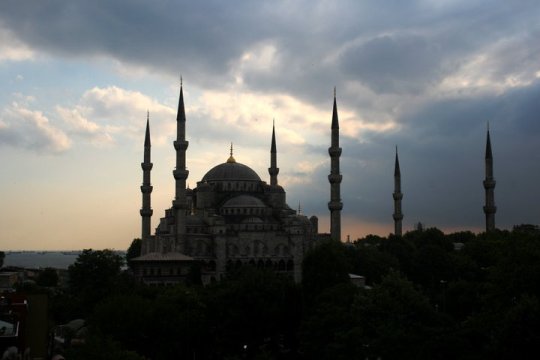
In August (which already feels like last year), I passed over an interesting date on my calendar, as on the 22nd – somewhat incredulously – I had been living abroad from Wales and Britain for ten years. A decade outside Europe. Ten years ago upon leaving, I had nothing to lose but a wide-open space in which to travel, discover and meet all variations of people, cultures and places.
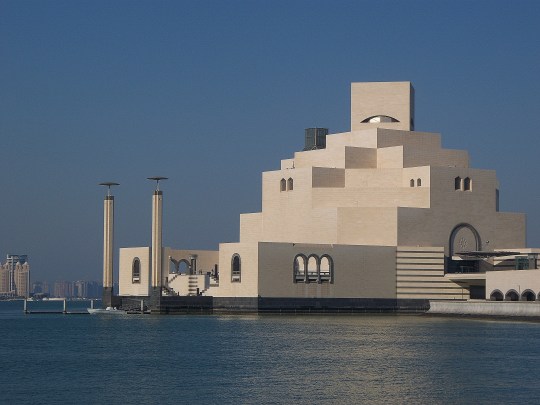
In this crazy time, I have lived on two continents, changed careers (a few times again); witnessed modern slavery, seen the remnants and after-effects of colonialism in new and old lands, learnt stuff, dropped habits, restarted those habits and dropped them again, realised what I missed while sacrificing those things for work; confirmed myself as an atheist, met someone in another land - who grew up, just a mile away from me – and married them; learnt more stuff - had young students die tragically, lost friends to cancer, worked under ridiculous conditions, made friends and lost acquaintances; had lots of surgery, seen equality rights improve but be violently opposed, seen my country finally qualify for a football finals tournament, owned my first dogs and love them like kids, seen the horrific, evil right-wing shadow cast over the world so bewilderingly subtle that I cannot recognise the world from ten years ago. And breathe.
As I pulled away from the glamour of Llanelli railway station on that date in August a decade ago; parents tearful (I was thirty-four and had left several times by this point – go figure); it seemed like the adventure it was about to become. Like the Lord Of The Rings story, I was to travel through some questionable places but alternatively - observe sights I wouldn’t have imagined. In my first hour of Doha life, seeing a woman in different attire to the usual Trostre car park attire in 2009 – ordering a shop worker around like a slave. “Get me this…get me that…” while repeatedly prodding his shoulder. Mind blown. Like I was watching a rich Caucasian American family from the late 1700s - jump to the 21st Century with their shopping techniques (Just to clarify - it was the manner and behaviour, not the attire which caused the bigger shock). The aisles of Asda in West Wales suddenly glittered with freedom. Yet somehow I stayed in the dusty, humid backward land for four years.
Not having record shops, comic or other book shops nearby – and the advent of a pub being a ‘membership only’ do – with very little else to do in Qatar, became a four-year strain. Although, the carnage of Friday brunch – paying the equivalent of £40-80, depending on the hosting hotel – for stuffing your face with all readily available food and guzzling sparking wine or beer for three-to-four hours until you stumbled out, into the hot sun – had a degree of rebellious sun about it. Away from the narrow lanes of daily Qatari constitution and archaic religious laws.
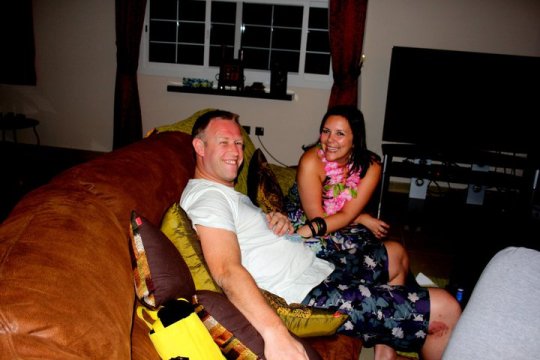
Realising that Melbourne was an escape route (by this time both Mr and Mrs Jones were infused by the travel bug – a return to Blighty was not an option), we visited the city in February 2013; kindly subsidised by Katherine’s future – and previous – employers. Our first encounter starting on a high street (for more than one intended pun reason) being that of intoxicated-to-oblivion bodies being dragged out of both McDonalds and KFC on a Friday night. Now this is more like home. High streets with open drunkenness and debauchery. Sign us up.
Not only that, but the self-appointed, clever social secretary – Mrs Jones – had organised what was to become my personal Australian favourite – its wine, through a vineyard tour of the Yarra Valley. If we could have been sold Melbourne – and Australia – any better in one week, I would be surprised. Plus the British and Irish Lions were touring here from June that year, so it could possibly be a dream come true, of seeing one of their test matches. It had to be Melbourne.

Of course, when you’re itching to leave a spiritually toxic place, yearning for a new social catapult in a new home – positives are mostly what you’ll see. Which is why living around the world – leaving the rough times with hope; expecting – or at least wishing for the rough to become smoother – it can be the most exposing and openly blatant aspect of life as an expat. Not knowing what will come next can be an exciting part of an adventure. It can also be of huge personal detriment should you not hit the ground running and settle into the new environment. While I have lived with immense pride at how my wife’s career has glowed in Melbourne, to say my working journey in Australia has been stop-start is like saying a Tarantino move ‘may contain violence’.
We can all live in a media-controlled bubble, wherever we are in the world. I would guess that most British people above thirty-five years of age would retain the idea that Australia is more alike the sun-drenched, ‘barbie’-having, beer-drinking eternal summers, as seen on Paul Hogan’s old adverts, Home and Away – as well as England’s Ashes tours are played in hot conditions. The thing with the validity of Paul Hogan’s Foster’s commercials – as good as they were, no-one in Australia drinks it. If it were the only thing available at a party, I’d have water. That’s always been my opinion of the uric juice. Australians have a joke about why they sell it to Britain because ‘Poms are stupid enough to drink it’. Thus, the irony and paradox of Foster’s being a symbol of Australia – it is not like Britain in the sun. You have to live here to know the hidden nuances. Sometimes, the hard way.
For instance, no-one would have told you that despite all your experience in certain industries in Britain – if you haven’t got “local” experience in Melbourne, then you won’t be employed (https://www.bbc.com/news/business-29206260). Hundreds of my unanswered job applications are testimony to that. Not many people can identify a Welsh accent. People will guess you’re Irish, English and Scottish - then run out of ideas of where else you could possibly come from. Rugby is not important in Melbourne (despite Australia having won the World Cup twice). Neither is driving or speaking fluently. Just abbreviate everything and end each word with an ‘o’. First world problems for graduates of an English and Culture degree, who still value their own culture and wonder why professional instructors are not mandatory in a Western, developed country.

First world problems or not – a decade later, third world problems seem to be entering the first world. Tomorrow, the general election of the four nations which are anything but united by royalty – and would certainly find it difficult to describe Britain as ‘great’ these days; regardless which side, fragment or definition of politics – you follow. It has become so depressingly divisive that it has split families – and societies right through those home nations. Politics across the world has become so murky and manipulative that no good comes of it. Social media, fake media, fake politicians, social tension – nothing is real. Apart from the poverty, confusion and disunity which has come from misinformation, lies and no real leadership.
When I left Europe, I wanted to find both myself – and my home. As mentioned, I had nothing to lose at the time – had my country been a thriving place, filled with opportunities – very much how Australians feel about their country – I may not have felt such wanderlust in my veins. I wanted to find my place. A place of belonging. In my home land, not only is it an industrial corpse which has become increasingly depressing to see its degradation in the past decade with each visit – but now won’t trust anyone so will seemingly vote for the ones who have harmed it most. If I really believed statistics being published this week about voting trends; Welsh voters now have lost their own moral compass and found a new level of Stockholm Syndrome, it would seem. My fingers are crossed to breaking point – in hope that those figures were nothing but propaganda. In 2019, anything is possible.

Wales – which has never had a Conservative majority – and rightly so considering its utter negligence of Wales - also now even being bandied as ‘West Britain’ by the future plans of the aristocratic parties, based in England – relies on tourism and the export of agriculture to survive. Universities help finance some aspects of the very few small cities we have, but outside of these urban entities, there is little growth. Considering the gentrification of larger cities (mostly in England) in the 2000s, isn’t it high time it happened in provincial towns?
The fact that some of my family – have told me they would probably vote Conservative this week – shows the predicament and alienation which is comparable to that of the 1930s in Germany and brought forth intolerance of racial and cultural variations. “Let’s vote for those who promise the most, have the least recent blemishes on their vague moral compasses – and hope for the best” – seems to be the strategy of casting a vote. The state of the NHS alone should be enough to veer the vote away from Captain Buffoon and his Blue Bigot Army. Elimination should be purely by track record, or by granting new chances. Not by being duped by rhetoric which will be forgotten in six months’ time apart from when a journalist raises the point - when it’s too late. Being loyal to your punisher is such a classist, British trait which seems to be perpetuated.
Now, at the end of the decade – it should be said that I probably still have little to lose. With no dependents apart from my little canine children, the next chapter now depends on what effects Brexshit will have on travel and work opportunities in Europe and the Northern Hemisphere. As an ex-teacher, hospitality pro and semi-professional DJ and producer – using the “anything is possible” to my advantage is the watchword. With social and international reasonability at an almost-anarchic state of suspended reality, the “one life, one chance” motto has to be imprinted on my mind.
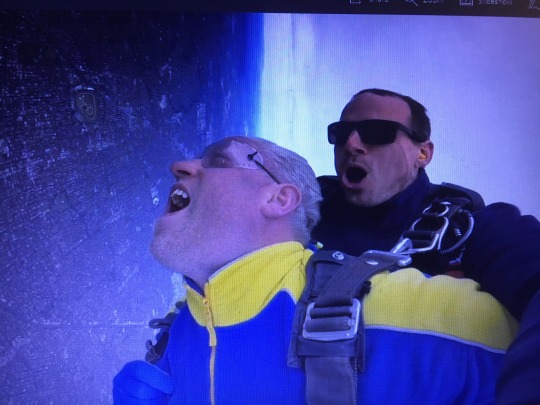
In my mid-forties, it feels like that the wanderlust needs to be summoned again. I’m finding it harder enduring bad road rules, taking orders from millennials who think they know everything, missing watching my teams at reasonable times, missing festivals which only happen up north, missing comedy such as Vic and Bob; time zone difficulties and being so far away from my interests, as well as friends and family. Coming to Melbourne with a completely open mind was something I’d repeat, should I head for a new habitat. Bearing in mind and researching cultural differences is definitely something I’d do, emphatically and thoroughly. The older you get, alarm bells ring louder with each situation. You just don’t want those bells to be a daily chime, after a while. So the most liveable place for me - would have an essential checklist of being – tolerant, multicultural, musical, a maximum of 3 hours’ time difference to Britain, with an effective infrastructure and not over-expensive. Now, where could that be?
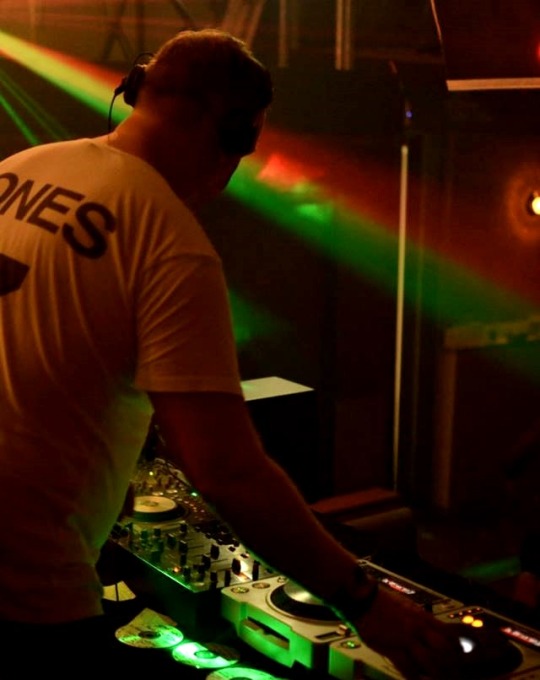
#expat life#abroad#politics#election#citizenship#friends#family#Britain#Wales#England#Scotland#Northern Ireland#Cymru#DJing#industry
0 notes
Text
I got tagged by @valkyrieofardyn, wheee~
Rules: tell me your favorite characters from fictional works (movies, books, tv, video games, etc.) and tag 10 people!
(This list is not ordered)
1.) Prompto Argentum (FFXV): He’s one of the realest, most fully-fleshed out characters I’ve seen in a videogame in a long time. His struggles are totally relatable to mine, which is why I like him so much. If someone with such similar hangups to me can do such great things, I can’t help but admire that and he gives me hope. He honestly tries his best, keeps his kindness and optimism despite being horrendously treated, and also has killer style. Fucking love him.
2.) Melfice (Grandia 2): He’s been my favourite character since I was fourteen. His Blood Brothers-style story arc with main character Ryudo had me completely sold. Such angst! Such sadness behind that evil persona he gained from being cursed by Valmar. And uh, such a goddamn sexy voice. My god. And with that big ol’ horn on his head, I totally will be blaming Melfice forever for my love of the D.
3.) Tails (Sonic the Hedgehog): For similar reasons to Prompto. Tails is just a little ray of sunshine, always does his best and puts others before himself, even though, with his insane mechanic skills and empathy, he should really be the MVP of the entire Sonic franchise. He doesn’t get nearly enough credit, but he’s not the sort to complain about it. As long as his friends are okay, as long as Robotnik is stopped, he’s happy. I just want to give him all the nice things.
4.) Allan Karlsson (The Hundred Year Old Man Who Climbed Out The Window And Disappeared): God, this book is the best. Allan Karlsson is, as the title says, a hundred-year-old-man who, on his centenary birthday, decides to climb out the window of his nursing home and go on an adventure. He’s characterised brilliantly, and throughout the bizarre adventure you end up finding out a lot about the escapades of his entire life. He’s SUCH a cool person. The coolest. If I could be such a lackadaisical and awesome old man I could die happy.
5.) Fujimoto (Ponyo): I’m a geology major and Fujimoto lives on a volcanic guyot under the sea alongside trilobites and other extinct creatures from the Cambrian era, so what’s not to like? But seriously, I love his backstory, there’s a lot of isolation and sadness and frustration there. Leaving humans behind to chase the call of the sea, hating what people are doing to the planet, falling in love with a goddess of the ocean. And damn if he doesn’t have the prettiest hair in the entire world.
6.) Ardyn Izunia (FFXV): One of the best-written villains in anything ever. I mean, Melfice will always be my fave for nostalgia reasons, but Ardyn is so fantastically characterised. His voice, his mannerisms, his motivation. He’s one of few characters I genuinely hate, and the backstory is so fucking tragic. He certainly knows how to hold a grudge, and I love that he’s a total morally ambiguous Judas/Jesus analogue. Like, how much of what he does is just playing the Devil’s Advocate to facilitate the end of the Starscourge, and how much of it is just the pained efforts of an old man who wants to die? God, it hurts thinking about it. And yet I can’t forgive him for hurting so many people. Damn, he’s just so complex and real.
7.) Letty Hempstock (The Ocean at the End of the Lane): From my favourite Neil Gaiman book. Like Ardyn, Letty is also an old, old soul, (in fact, Ardyn has nothing on her) but she is bright and optimistic and still exploring her power. She is mythologically tied into the real world in a way I’ve never seen before in fiction, a very, if I may say, geological way. And I simply love it. She’s got her own motivations and plans, but she’s ultimately a helpful and totally engaging, sparky character. I would feel like the Earth stood a chance if she was real.
8.) Gaara (Naruto): An old favourite from my weebiest days. I loved this character so much I cosplayed him excessively, haha. So much angst, so much demonisation, when really he was just a big softie underneath. I just wanted people to be nice to him. Gaara was a classic example of nurture creating the illusion of nature, of child-PTSD, of mental trauma and his eventual healing process over the long arcs of Naruto’s entire run made me so fucking happy. He outgrew his (literal) demons and did great things. Damn inspiring.
9.) Bruce Robertson (Filth): I debated marking Bruce as my top character of all time because, my god, he actually IS the best-written villain ever. Because he’s not entirely a villain, he’s just an ordinary person, your average copper in Edinburgh. A man who you start out almost agreeing with at the beginning of the novel, and wind up down a rabbit hole so deep you wonder how you got there, you start to worry as you read that you might have become this terrible thing - the way he’s written gets you inside his head, makes the lines blur. Bruce is utterly real, utterly believable, and completely, wholly nasty. I wish I had the skills of Irvine Welsh, to achieve a characterisation so great. I hate him but love his character, love every nuance and inflection. For the love of god, read Filth.
10.) Kilgrave (Jessica Jones): God, this man disturbs me, and it’s precisely because he’s so perfectly believable. He’s a man born with mutant powers that make people do his bidding - he’s grown up entirely within a privileged context, never having to worry about obtaining anything. People just do it for him. And as a result his personality is somewhat stunted - a literal manchild. The most terrifying thing is, we have all met someone like Kilgrave in life. He doesn’t fully understand that he’s hurting Jessica. He doesn’t understand she doesn’t love him. And he feels sleighted, hurt by this. Like all good villains, like Ardyn and Melfice and Bruce Robertson above, Kilgrave has aspects of his history and personality that are pitiable, that make me feel sorry for him. But it doesn’t make me hate him any less. God, he’s a bit of a lost cause, but such a great character study.
I tag: @yourscientistfriend, @cuiwi, @sodsta, @thatisludicrous, @shockerrbreakerr, @barcodechocobo, @chocoomba, @prettyprompto, @catbuttermargerine
#well this was fun#favourite characters#who woulda thought I like the optimists and the well-written villains?
13 notes
·
View notes
Text
On September 11th
Kind of eerie to think how for every September 11th I’ll experience going forward, at some point, I am going to stop and reflect on what happened 18 years ago. It’s kind of eerie to think (knock on wood) that eventually I’ll probably have to tell my kids and grandkids about what happened on that day. It’s kind of eerie to think that one day would have so power and influence over my life that the events of that day will forever reverberate throughout my life until I die. But, ultimately that’s life. Previous generations had their “moments,” and our generation has ours. For me, September 11th will always be a day engulfed in tragedy. Normal everyday people woke up in the morning, went to work or the airport and never returned home. In an instant people and families who had clumsily tried to weave the fabric of their lives together found their lives ripped apart.
I remember being in school and seeing the number of my fellow classmates dwindle as frightened and scared parents stopped what they were doing and decided to focus on what mattered most. I remember my mom picking me up from school. I remember listening to the radio on the short ride from my school to my house and later watching the news and simply not being able to wrap my 9-year-old mind around the events of the day. I remember seeing the smoldering towers on TV and watching dark hazy objects fall from the windows. And once again not being able to wrap my 9-year-old mind around the fact that those dark hazy pixels on my tv screen were actually human beings made of flesh and blood like me. In short, September 11th was both the most terrifying and the most perplexing day of my childhood.
As I’ve grown older, however, I’ve come to realize that even though September 11th was a deep and dark tragedy that there were, even on that harrowing day, simple, beautiful, majestic acts of human courage that epitomize mankind at its best. I’ve come to read stories about firefighters and policemen who rushed into those burning towers, on the mere chance that they’d be able to save someone, ultimately putting their own lives at risk. I’ve read stories about the normal everyday people on united flight 93 who, upon hearing how other planes were hijacked, decided to fight to retake their plane. I’ve read stories like the one I share every year of Rick Rescorla…
“At 8:46 a.m. on the morning of September 11, 2001, American Airlines Flight 11 struck the North Tower of the World Trade Center (Tower 1). Rescorla heard the explosion and saw the tower burning from his office window on the 44th floor of the South Tower (Tower 2). When a Port Authority announcement came over the P.A. system urging people to stay at their desks, Rescorla ignored the announcement, grabbed his bullhorn, walkie-talkie, and cell phone, and began systematically ordering Morgan Stanley employees to evacuate, including the 1,000 employees in WTC 5. He directed people down a stairwell from the 44th floor, continuing to calm employees after the building lurched violently following the crash of United Airlines Flight 175 38 floors above into Tower 2 at 9:03 A.M. Morgan Stanley executive Bill McMahon stated that even a group of 250 people visiting the offices for a stockbroker training class knew what to do because they had been shown the nearest stairway.
Rescorla had boosted morale among his men in Vietnam by singing Cornish songs from his youth, and now he did the same in the stairwell, singing songs like one based on the Welsh song “Men of Harlech”:
“Men of Cornwall stop your dreaming, Can’t you see their spearpoints gleaming?, See their warriors’ pennants streaming, To this battlefield. Men of Cornwall stand ye steady, It cannot be ever said ye For the battle were not ready Stand and never yield!”
Between songs, Rescorla called his wife, telling her, “Stop crying. I have to get these people out safely. If something should happen to me, I want you to know I’ve never been happier. You made my life.” After successfully evacuating most of Morgan Stanley’s 2,687 employees, he went back into the building. When one of his colleagues told him he too had to evacuate the World Trade Center, Rescorla replied, “As soon as I make sure everyone else is out.” He was last seen on the 10th floor, heading upward, shortly before the South Tower collapsed at 9:59 A.M. His remains were never found. Rescorla was declared dead three weeks after the attacks.
Nothing will replace the lives that were tragically lost 18 years ago. But if all we remember, if all we focus on, if all we tell our children and our grand children and write in our history books are stories that leave out the simple, beautiful and awe-inspiring acts of courage that so many human beings engaged in and risked their lives doing on that fateful day we would be denying the deepest and most important truth of the human experience. That regardless of how bad things are and how dark things get, regardless of how tragic and stormy outer circumstances might be, that there are elements of the human spirit that embody and cling to the values of courage and love in the face of even the worst tragedy to occur in our lifetime, and those same elements exist in you and me.
“So courage is the power of the mind to overcome fear. Fear, unlike anxiety, has a definite object which can be faced, analyzed, attacked and endured. So often the object of our fear is fear itself. “Nothing,” says Seneca, “is terrible in things except fear itself.” And Epictetus says, “for it is not death or hardship that is a fearful thing, but the fear of death and hardship.” Courage can take the fear produced by a definite object into itself and thereby conquer the fear involved. “Courage,” says Paul Tillich, “is self-affirmation ‘in spite of’… that which tends to hinder the self from affirming itself.” It is self-affirmation in spite of death and non-being. He who acts courageously takes the fear of death into his self affirmation and acts upon it. This courageous self affirmation which is a sure remedy for fear is not to be confused with “selfishness.” Self-affirmation includes the right self-love and the right love of others. Erich Fromm has pointed out in convincing terms that the right self-love and the right love of others are interdependent, and that selfishness and the abuse of others are equally interdependent.
Courage is that quality which enables us to stand up to any fear. It is the final determination not to be stopped or overwhelmed by any object, however frightful it may be. Many of our fears are very real, and not mere snakes under the carpet. Trouble is a reality in this strange medley of life and dangers lurk beneath our every move. Accidents do occur and bad health stands as an ever threatening possibility. Death is a stark, grim and inevitable reality. We do ourselves and our neighbors a great disservice when we try to prove that there is nothing in this world to be frightened at. In this conundrum of life evil and pain are inescapable realities. The things that make for fear are close to all of us. These forces that threaten to negate life must be met and challenged by a daring “courage to be.” Courage is the power of life to affirm itself in spite of its ambiguities. It involves the exercise of a great and creative will. It is a bottomless resourcefulness that ultimately enables a man to hew out of the mountain of despair a stone of hope. Courage is the inner determination to go on in spite of obstacles and frightening situations; cowardice is the submissive surrender to the forces of circumstance. The man of courage never loses the zest for living even though his life situation is zestless; the cowardly man, overwhelmed by the uncertainties of life, loses the will to live. Courage breeds creative self‐affirmation; cowardice breeds destructive self-abnegation. Courage faces fear and thereby masters it; cowardice represses fear and is thereby mastered by it. So we must constantly build dykes of courage to ward off the flood of fear.”
“Love is the ultimate force that makes for the saving choice of life and good against the damning choice of death and evil. Therefore the first hope in our inventory must be the hope that love is going to have the last word.”
0 notes